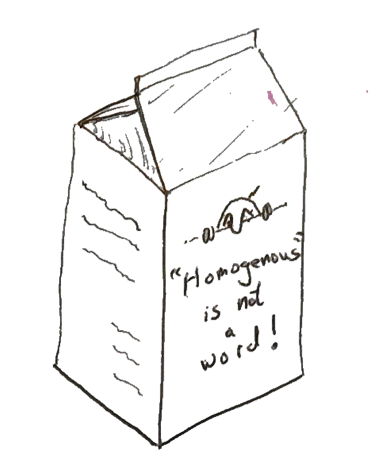Boyhood vs Little House Smackdown
She was glad that the cozy house, and Pa and Ma and the firelight and the music, were now. They could not be forgotten, she thought, because now is now. It can never be a long time ago.
Or, put another way, "It's constant, the moments, it's just - it's like it's always right now, you know?"
So little Laura figures it all out at the age of 5, while Mason comes to the realization only after implanting an ear gauge, leaving for college and getting high in a location of staggering natural beauty. But it's not like it's a competition …
more ... The first thing to stress is that we're talking about
homogeneous data, because "homogenous" means something
The first thing to stress is that we're talking about
homogeneous data, because "homogenous" means something